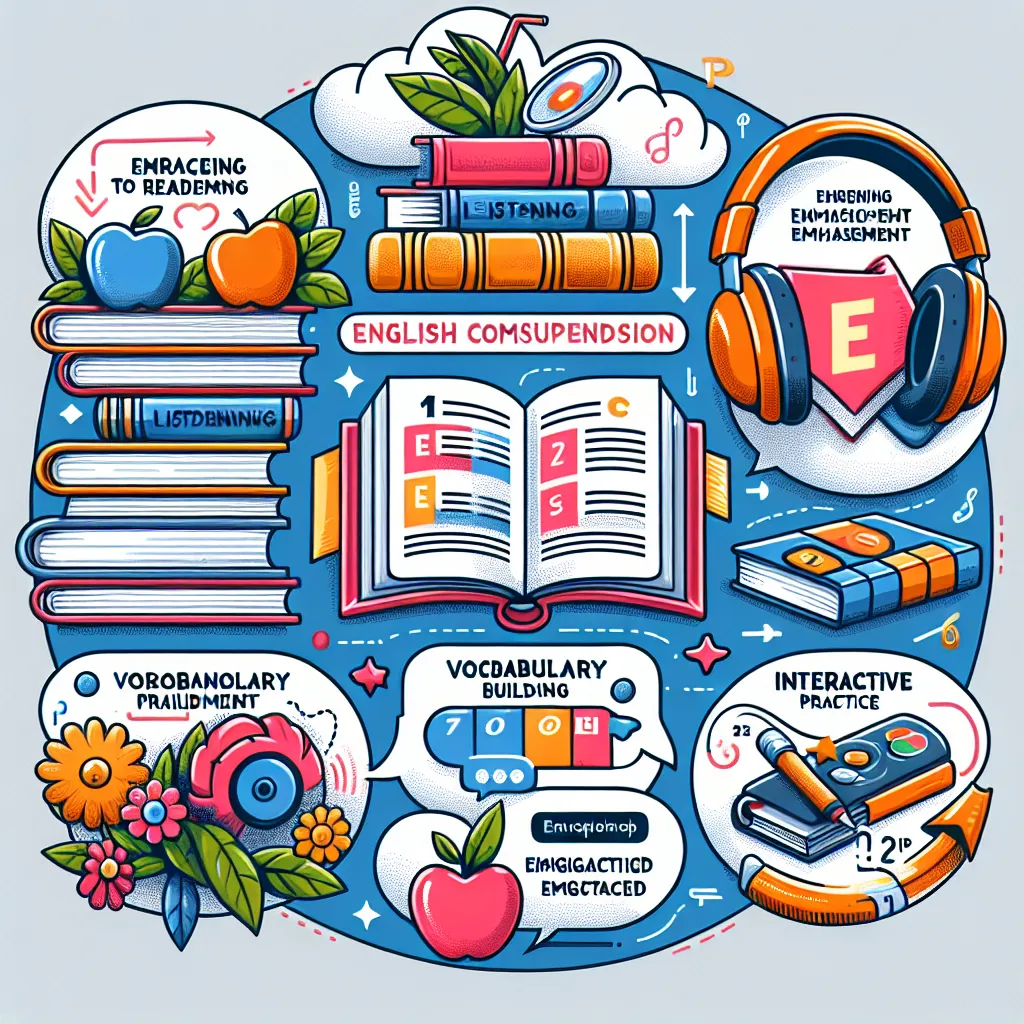Are you looking to improve your English language skills but unsure where to start? Establishing a solid English study routine is crucial for making consistent progress. In this article, we’ll explore valuable tips to help you create an effective English study routine that fits your lifestyle and learning goals.
Why a Study Routine Matters for English Learners
Having a structured approach to learning English can significantly impact your progress. A well-planned routine helps you:
- Maintain consistency in your learning efforts
- Track your progress more effectively
- Develop good study habits
- Reduce stress and anxiety related to language learning
- Achieve your language goals faster
 Effective English Study Routine
Effective English Study Routine
Essential Components of an Effective English Study Routine
1. Set Clear Goals
Before diving into your study routine, it’s crucial to establish clear, achievable goals. Ask yourself:
- What specific areas of English do I want to improve? (e.g., speaking fluency, writing skills, vocabulary)
- What level do I want to reach, and by when?
- Are there any exams or certifications I’m aiming for?
Setting SMART (Specific, Measurable, Achievable, Relevant, Time-bound) goals will help you stay motivated and focused throughout your learning journey.
2. Create a Balanced Schedule
A well-rounded English study routine should include practice in all four language skills: reading, writing, listening, and speaking. Here’s a sample weekly schedule:
- Monday & Thursday: Focus on reading and vocabulary
- Tuesday & Friday: Concentrate on listening and speaking
- Wednesday & Saturday: Dedicate time to writing and grammar
- Sunday: Review and practice all skills
Remember to adjust this schedule based on your personal commitments and learning preferences.
3. Incorporate Daily Immersion
Immersing yourself in English every day is key to rapid improvement. Try these activities:
- Listen to English podcasts or radio shows during your commute
- Watch English YouTube videos or TV series with subtitles
- Read English news articles or blogs during breakfast
- Change your phone and social media language settings to English
4. Use Diverse Learning Resources
Variety is the spice of life, and it’s also crucial for effective language learning. Mix up your study materials to keep things interesting and cover all aspects of the language:
- Textbooks and workbooks for structured learning
- Language learning apps like Duolingo or Babbel for on-the-go practice
- Online courses or MOOCs for in-depth study
- English language learning websites for additional exercises and resources
5. Practice Speaking Regularly
Many learners struggle with speaking confidence. To overcome this, make speaking practice a non-negotiable part of your routine:
- Join language exchange websites or apps to find conversation partners
- Attend local language meetups or conversation clubs
- Record yourself speaking and listen back to identify areas for improvement
- Practice shadowing techniques with native speaker audio
 English Speaking Practice
English Speaking Practice
6. Implement Active Reading Strategies
Reading is a fantastic way to improve vocabulary and grammar naturally. Enhance your reading practice with these tips:
- Choose materials slightly above your current level for a challenge
- Highlight new vocabulary and create flashcards
- Summarize what you’ve read in your own words
- Discuss or write about your thoughts on the material
7. Focus on Productive Skills
While input (listening and reading) is crucial, don’t neglect output (speaking and writing). Dedicate time to:
- Writing essays, journal entries, or blog posts in English
- Participating in online English forums or social media discussions
- Creating video blogs or podcasts in English
- Teaching concepts you’ve learned to others (even if imaginary)
8. Track Your Progress
Monitoring your advancement is essential for staying motivated. Consider these tracking methods:
- Keep a language learning journal
- Use apps or websites that offer progress tracking features
- Take regular self-assessment tests
- Record videos of yourself speaking English at different intervals to see improvement
9. Make Time for Review
Regular review sessions help solidify your learning. Dedicate time each week to:
- Revisit vocabulary you’ve learned
- Review grammar rules and practice exercises
- Re-read your own writing and look for ways to improve
- Listen to recordings of your speaking practice and note areas for enhancement
10. Stay Consistent and Adjust as Needed
Consistency is key in language learning. Stick to your routine, but be flexible enough to make adjustments when necessary. If certain methods aren’t working for you, don’t be afraid to try new approaches.
Common Pitfalls to Avoid in Your English Study Routine
While creating your study routine, be mindful of these common mistakes:
-
Overloading your schedule: Quality is more important than quantity. It’s better to have focused, productive study sessions than long, ineffective ones.
-
Neglecting certain skills: Ensure you’re giving attention to all language areas, not just your favorites or the easiest ones.
-
Relying too heavily on passive learning: While watching English movies or listening to music is beneficial, it shouldn’t be your only method of study.
-
Failing to set specific goals: Without clear objectives, it’s easy to lose motivation or direction in your studies.
-
Ignoring the importance of rest: Language learning can be mentally taxing. Make sure to include breaks and rest days in your routine to avoid burnout.
Next Steps: Putting Your Routine into Action
Now that you have the tools to create an effective English study routine, it’s time to put it into practice. Here are some steps to get started:
- Write down your language learning goals
- Create a weekly schedule based on the tips provided
- Gather your study materials and resources
- Set up a comfortable study space
- Start with a two-week trial of your new routine
- After two weeks, assess what’s working and what needs adjustment
- Make necessary changes and continue with your improved routine
Remember, the key to success is consistency and persistence. Even on days when you don’t feel motivated, try to stick to your routine, even if it’s just for a short time.
Conclusion
Creating an effective English study routine is a personal process that may require some trial and error. By incorporating these tips and staying committed to your goals, you’ll be well on your way to improving your English skills consistently and efficiently. Remember to be patient with yourself and celebrate your progress along the way. With dedication and the right approach, you’ll be surprised at how quickly your English abilities can improve.
Do you have any favorite study techniques or resources that have helped you in your English learning journey? Share your experiences in the comments below, and don’t forget to check out our other articles on language learning strategies for more helpful tips!




